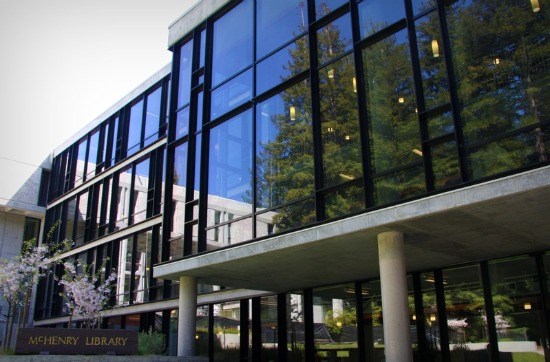Newsletter 2020
Mathematics Newsletter, Fall 2020
Note : Many members of the UCSC community and the Department have long been concerned with diversity and inclusion issues, and awareness of these issues has increased recently because of the George Floyd protests. You can find more information and provide feedback about diversity and inclusion issues as they pertain to Math at ams.org/about-us/understanding-ams-history
In This Issue:
- Colloquium/Seminar Schedule
- Preliminary Exam Dates
- Dates to Remember 2020-21
- Colloquia and Seminars 2019-20
- New Faculty Profiles
- New Graduate Students
- 2019-20 Leavers
- Richard Montgomery Retires
- Gina Hernan completes DICP
- Directed Reading Program (DRP)
- 2020 Award Winners
- MBAMP: Serving Local Students
Colloquium/Seminar Schedule:
4-5pm McHenry Room TBA
Tuesdays : Math Tea 3:30-4pm
McHenry 4161 (informal meet-and-greet)
Math Colloquium 4-5pm
Wednesdays : Geometry & Analysis 4-5pm
Thursdays : Graduate Colloquium 4-5pm
Fridays : Algebra & Number Theory 4-5pm
Preliminary Exam Dates:
Check for updates!
Fall 2020 Prelims will be remote
9am to 2pm Pacific Time
- Friday, October 2nd: Algebra
- Friday, October 9th: Geometry
- Friday, October 16th: Analysis
Dates To Remember:
Thursday, September 24th & Friday, September 25th, time is TBD. Training Dates: Inclusive Classroom Practices Using 21st Century Pedagogy. This special two day training is being designed in partnership with CITL, HSI Initiatives, the Math Department, and STEM Teaching Learning Community Steering Committee members. More information will be coming soon-- please be on the lookout for a follow up email/invitation from HSI. If you are a 20-21 admit you are automatically signed up for this training.
Saturday, September 26th: Fall Quarter Officially Begins. (for administrative purposes.)
Tuesday, September 29th: Mathematics Department Orientation. This orientation will be for new and continuing Math grads. This year we will be doing this by Zoom-- check your Google calendar invite for more details.
Wednesday, September 30th: Graduate Student Orientation TBD. This event will include Teaching Assistant Orientation, Title IX training, and a campus resource fair for graduate students at UC Santa Cruz. The Orientation is a great time to learn about the campus, and organizations here to help you as you continue your education at UC Santa Cruz. You must register; see the link in Gina's email.
Thursday, October 1st: First Day of Fall Instruction. TA Assignment Meeting in evening (4pm.) This meeting will include Teaching Professor Morales, Teaching Professor Bauerle, Professor Lin, and head TA Nathan Marianovsky. We will go over TA assignments and schedules for Fall quarter.
2019-2020 Colloquia & Seminars
General Colloquium :
- Frederic Faure, Joseph Fourier University. Emergence of the quantum wave equation in classical deterministic hyperbolic dynamics
- Eduardo Fuertes. Some new constructions for loops of Legendrians in the standard contact 3‑sphere
- Nikhil Savale, University of Cologne. Spectrum and Abnormals in Sub-Riemannian geometry: the 4D quasi-contact case
- Chris Kottke, New College of Florida. You'll look sweet, Upon the seat, Of a bigerbe made for two
- Mikko Salo, MSRI & University of Jyväskylä. Inverse problems for PDEs
- Bo Guan, Ohio State University. Conformal deformation of Chern-Ricci curvatures and fully nonlinear elliptic equations on complex manifolds
- Jaclyn Lang, University of Paris. Arithmetic, Geometry, and the Hodge and Tate Conjectures for self-products of K3 surfaces
- Beren Sanders, UCSC. An introduction to tensor triangular geometry
- Baiying Liu, Purdue University. Langlands functoriality and converse theorems
- Lola Thompson, Oberlin College. Bounded gaps between primes and volumes of manifolds
- Florian Sprung, Arizona State University. The Birch and Swinnerton-Dyer Conjecture, prime by prime
- Jesse Kass, University of South Carolina. An introduction to counting curves arithmetically
- special guest : Gunnar Carlsson, Stanford University and Ayasdi, Inc. Topology for Artificial Intelligence
- Ian Langmore, Google Mountain View. Bayesian Inversion of Electron Density in Fusion Plasmas.
- joint colloquium with Economics, Applied Math :
Andrew Klingler, Pacific Gas and Electric Company. Mathematical and Economic Modeling in the Electric Industry - Robin Graham, U of Washington. Renormalized Volume for Singular Yamabe Metrics
Geometry and Analysis :
- Thibault Lefeuvre, MSRI, Paris-Sud University. Geodesic stretch, pressure metric and the marked length spectrum rigidity conjecture
- Ruobing Zhang, Stony Brook University. Geometric analysis of collapsing Calabi-Yau spaces
- Stephen Kleene, University of Rochester. Desingularizing Non-Degenerate Surfaces
- Hadrian Quan, MSRI, University of Illinois at Urbana-Champaign. The Heat Kernel of a Contact Manifold in the Sub-Riemannian Limit
- Zhen Huang, City University of New York. Blowing Up Closed Minimal Surfaces In Hyperbolic Three-Manifold
- Kamran Sadiq, Johann Radon Institute (RICAM.) The Bukhgeim-Beltrami Equation With Applications To Optical Molecular Imaging
- Eric Chen, UC Santa Barbara. Critical power integral pinching for the Ricci flow on asymptotically flat manifolds
- Sean Curry, UC Davis. The Embeddability Problem for Deformations of the Unit Sphere in ℂ^2
- Brian Harvie, UC Davis. Singularity Formation and Self-Intersection for the Inverse Mean Curvature Flow
- MATH Workshop on Software Techniques, presented by Francois Monard.
Writing Math, Writing About Math: Q&As on TeX and research - Antoine Song, UC Berkeley. Morse index, Betti numbers and singular set of bounded area minimal hypersurfaces
- Alejandro Bravo, UCSC. Higher Elastica: Geodesics in the Jet Space
- Gabriel Martins, CSU - Sacramento. Semiclassical mechanics on manifolds
- Joey Zou, Stanford. Streak artifacts from non-convex metal objects in X-ray tomography
- Steven Flynn, UCSC. Quantizing the Fourier Slice Theorem
- Sean Gasiorek, University of Sydney. Minkowski Billiards on the Hyperboloid of One Sheet
- Amir Vig, UC Irvine. Wave invariants and inverse spectral theory
Algebra and Number Theory :
- Justin Lynd, University of Louisiana, Lafayette. Cohomology of functors in local finite group theory.
- Michael Mertens, RWTH Aachen University. Weierstrass mock modular forms and vertex operator algebras
- Deniz Yilmaz, UCSC. The A-fibered Burnside Ring as A-fibered Biset Functor in Characteristic Zero
Graduate Colloquium : (talks by UCSC graduate students)
- Alejandro Bravo-Doddoli, UCSC. The persistent of periodic orbits on the monster tower and n-trailers
Spring 2020 talks were mostly cancelled due to COVID-19 precautions. Our Geometry and Analysis Zoominar was a successful exception, drawing on our previous experience with using Zoom to connect people and enable remote attendance. We hope to extend our use of Zoom for talks in the future, with an eye towards creating a blended approach that will allow simultaneous participation in physical and virtual space.
New Mathematics Faculty
Welcome to the UCSC Mathematics Department !
We are so happy you are here !
We are tremendously pleased to announce the hiring of a new professor, our latest addition to the Algebra research group, Jesse Kass. Dr. Kass is currently at the University of South Carolina. His work is at the interface of Number Theory and Algebraic Geometry, with connections to topology and enumerative geometry. His research will be a valuable addition to our Algebra/Number Theory group, and the department in general.
As well, his work to commemorate early African-American students in Math, such as James L. Solomon, a former Math graduate student who was one of the first three African-American students to desegregate the University of South Carolina in the 1960s, is a strong contribution to diversity in Mathematics, and a very welcome step towards recognizing the legacy of African-American achievements in the discipline.
He will be joining our department in 2021-22. Let's warmly welcome Jesse to UCSC !
We would also like to welcome our 2020/1 Visiting Scholars
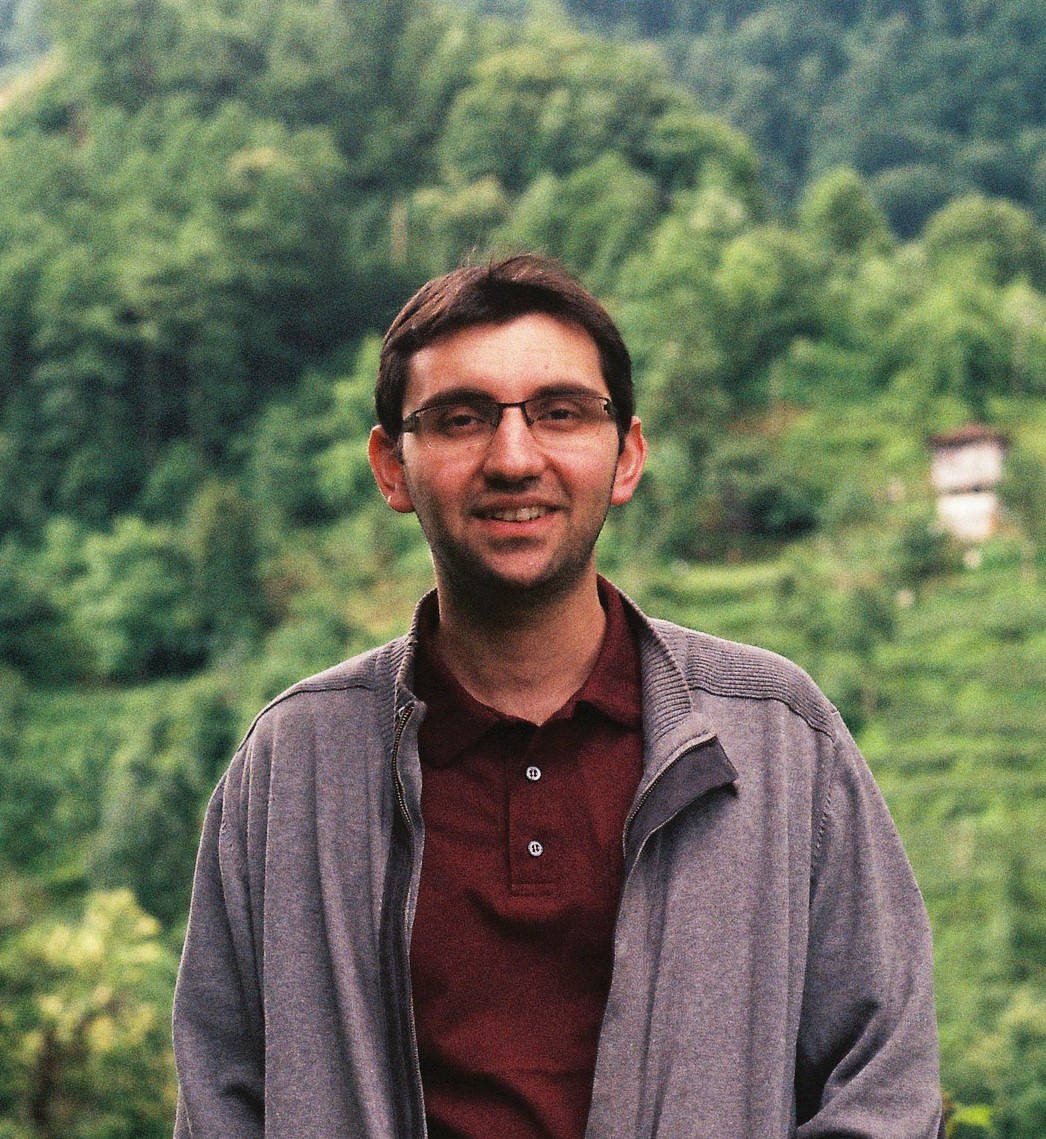 Burak Hatinoglu
Burak HatinogluIn broad sense, my research lies within analysis and mathematical physics. In particular, I am working on inverse spectral theory of differential operators, Chebyshev and orthogonal polynomials and Toeplitz operators.
Besides mathematics, I like to spend time on literature and basketball.
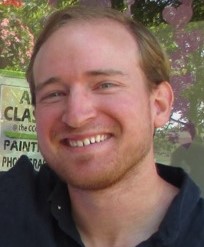
Andrew Kobin
My name is Andrew Kobin. I'm originally from a small town near Milwaukee, WI, and I received my bachelor's and master's degrees in math from Wake Forest University in Winston-Salem, NC, as well as my PhD from the University of Virginia in Charlottesville, VA, in 2020. I'm excited to start my position at UCSC!
I think about many topics in arithmetic geometry, number theory and homotopy theory, including: stacks, wild ramification invariants, modular forms, zeta functions and so-called "enriched" enumerative geometry. I'm also always happy to chat about anything that's not on this list, so please don't hesitate to introduce yourself over email (for now) or come by my office (hopefully in the near future).
Beyond math, I enjoy playing music, walking my dogs, learning languages and spending time outdoors. I can't wait to explore the Santa Cruz area - suggestions are welcome!
New Graduate Students Fall 2020
- Aiken, Sophie
- Budak, Doga Ulas
- Hampton, Wade
- Johnson, Sam
- Kay, Jonathan
- Kim, Young
- Lam, Yuk
- Liao, Junwen
- Ma, Tao
- Meyer, Greyson
- Owens, Brandon
- Qi, Zhengyi
- Tessner, Alexandria
- Zou, Changhan
2019-20 Leavers include
graduating with a Masters or Doctorate
- Glen McDermott
- Charlie Petersen
- Ryan Drury
- Deniz Yilmaz
- Harrison Henningsen
- Ezekiel Lemann
- Natalya Jackson
- Steven Flynn
- Suzana Milea
- Jiaqi Chen
- ABD (all but dissertation)
- Matthew Grace
- Patrick Allmann
- Victor Bermudez
- Salvador Guererro
Richard Montgomery retires
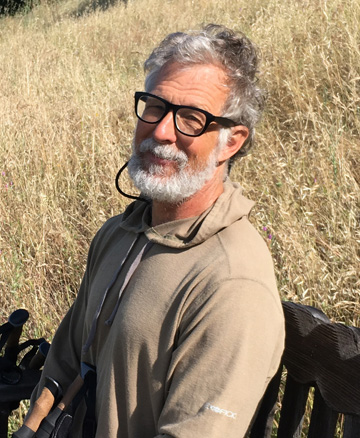 Effective Summer 2020, we announce the retirement of Distinguished Professor Richard Montgomery. We are honored by his many services, and sad to see him leave. However, he will still be on-campus for a while, mentoring his graduate students... and whispers suggest that he will grace us with offerings of Math 209 in Winter quarters to come.
Effective Summer 2020, we announce the retirement of Distinguished Professor Richard Montgomery. We are honored by his many services, and sad to see him leave. However, he will still be on-campus for a while, mentoring his graduate students... and whispers suggest that he will grace us with offerings of Math 209 in Winter quarters to come.
"A big influence on my career has been 'classical' gauge theory: the geometry of a principal bundle with connection. Following the physicists Shapere, Wilczek and Guichardet, I explored the connections between gauge theory and questions in everyday (not high energy) physics and control such as how does a cat, dropped from upside down, [land] with zero angular momentum? Idealizing the cat to consist of only three mass points led me deep into the jungle of the three-body problem, where I have stumbling about in wonderment ever since."
The Three-Body Problem : Its figure-8 solution is perhaps the most famous work of Distinguished Professor Montgomery. His unexpected, elegant answer to a centuries-old question of chaos is intriguing in its beauty.
*** Ave, Richard. May you always land on your feet.
*** LINKS :
Richard's homepage @ people.ucsc.edu/~rmont/
math.ucsc.edu/people/regular.php?uid=rmont
news.ucsc.edu/2019/08/three-body-problem.html
Watch PBS video about 3-body problem @ tinyurl.com/3bodyvideo
Read Richard's Scientific American article @ tinyurl.com/sa3bodyarticle
Older article about Richard @ math.ucsc.edu/news/three-body.html
Gina Hernan completes DICP !

Gina Hernan is now one of the graduates of the Diversity and Inclusion Certificate Program. Sponsored by ODEI (the Office for Diversity, Equity, and Inclusion,) the program is open to staff, faculty, and graduate students. DICP participants attend 7 required sessions, and 2 elective sessions, of a workshop designed to offer an in-depth examination of diversity and differences. The goal is to gain a greater understanding of how we can and why we should work together to build a stronger and more inclusive community. Participants gain valuable knowledge and skills that will enable them to more effectively and enjoyably work and lead in a multicultural, diverse environment. They complete the program by giving a capstone presentation, wherein they apply what they learned to their work on campus.
Way to go, Gina !
The Directed Reading Program
Organizer: Nathan Marianovsky
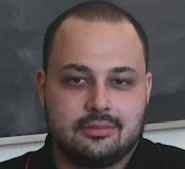 The Directed Reading Program (DRP) at UCSC pairs experienced graduate students with motivated undergraduates to meet weekly and discuss a topic of their choice. This is a valuable opportunity for undergraduate students to learn material not offered in classes, and for graduate students to contribute their expertise and gain experience in outreach and mentoring.
The Directed Reading Program (DRP) at UCSC pairs experienced graduate students with motivated undergraduates to meet weekly and discuss a topic of their choice. This is a valuable opportunity for undergraduate students to learn material not offered in classes, and for graduate students to contribute their expertise and gain experience in outreach and mentoring.
At the end of the quarter, undergraduate students give a 15-20 minute talk about their work. We expect graduate students to help their mentees prepare for this talk — communicating knowledge is just as important as acquiring it!
Future plans for the program include securing further funding from external sources to broaden participation, as well as connecting with other DRPs in the Bay Area to provide more speaking opportunities for undergraduate math majors. For more information see the navigation at math.ucsc.edu/graduate/drp/
Mathematics Awards Spring 2020
Congratulations, Allegra Martino and Morgan Makhina, recipients of our Mathematics Awards for 2020! Both received awards in recognition of their accomplishments in the Pure Mathematics concentration of the Mathematics major. We are honored to celebrate their hard work and to be able to present them with an award.
They were selected by Mathematics faculty as recipients of this year's J.W.T. Youngs Memorial Undergraduate Award in Mathematics. The family and friends of Professor Youngs, a former professor at UCSC, established the award after he tragically passed away in 1970. Professor Youngs was a member of the Mathematics Department and a Fellow of Cowell College. The endowment was established to honor his memory by supporting two annual prizes, one for an outstanding student of Mathematics enrolled in Cowell College, and one for an outstanding student of Mathematics enrolled anywhere on the Santa Cruz campus. The Youngs Award is intended to encourage and sustain awareness of the beauty of mathematics by recognizing those who, as Youngs did, "reveal the grace inherent in the discipline, independent of its application to other fields"; “the excitement and elegance possible in mathematics.”
We wish them all success in their future endeavors!
Youngs Awards 2020
Allegra Martino
 Hi! I am Allegra Martino, a fourth year Pure Mathematics student soon to graduate from UCSC. My favorite topics I’ve learned about during my time here include the classification of finite groups, algebraic number theory, and Galois theory. My love for mathematics goes beyond the classroom; I enjoy crocheting topological surfaces and knots, another skill for which I can thank UCSC.
Hi! I am Allegra Martino, a fourth year Pure Mathematics student soon to graduate from UCSC. My favorite topics I’ve learned about during my time here include the classification of finite groups, algebraic number theory, and Galois theory. My love for mathematics goes beyond the classroom; I enjoy crocheting topological surfaces and knots, another skill for which I can thank UCSC.
I am very thankful to all of the professors who have taught me mathematics during my time here, and all those who have done math with me. I especially want to thank Prof. Boltje, Prof. Cooperstein, Prof. Ehrhardt, Prof. Suh, Natalya Jackson, and Nick Walters for encouraging and supporting me in my career. I hope to pursue a PhD in pure math and do research in algebra in the future.
Morgan Makhina
 Hello, my name is Morgan Makhina. In a former life I worked as a consulting utility forester in the Yosemite area. Although the job was by no means dull, my last two years as a student at UCSC have been even more exciting.
Hello, my name is Morgan Makhina. In a former life I worked as a consulting utility forester in the Yosemite area. Although the job was by no means dull, my last two years as a student at UCSC have been even more exciting.
As quite a few other people, I initially decided to study mathematics because of its applications to physics; however, over time I’ve found certain areas of math interesting in their own right. While it’s hard to pick favorites from the many wonderful courses I’ve taken here, I have particularly enjoyed topology, classical geometry, and linear algebra (the latter two of which I hope to teach someday).
Perhaps what I enjoy most in math is discovering visual/spatial approaches to abstract problems. It strikes me that while humans are not especially good at, say, mental arithmetic or solving systems of linear equations, a long process of evolution has made us phenomenal at far more complicated tasks such as recognizing objects and navigating around obstacles. An apt visualization lets us tap into that powerful computing resource to solve the problems we find difficult.
Aside from the academics at UCSC, I also appreciate this school for its cultural diversity and natural campus setting. For these reasons I plan to remain here as a graduate student.
Serving Middle and High School Students
Monterey Bay Area Mathematics Project - MBAMP
The Monterey Bay Area Mathematics Project (MBAMP) exists to increase the academic achievement of primary and secondary students in mathematics (grades K – 12) via professional development programs (PD) for teachers. These programs enhance subject knowledge and teaching skills of classroom teachers, producing more effective educators, and thus better-prepared, better-achieving students. By offering these PD opportunities to a wider range of teachers, MBAMP will also reduce achievement and performance gaps between different student populations.
Core to the improvements sought by MBAMP are its partnerships with local school districts; the Santa Cruz, San Benito, Monterey, and Santa Clara County Offices of Education (COEs); the Mathematics faculty of UCSC; and other organizations concerned about mathematics education.
MBAMP is dedicated to providing students a rich, rigorous, and coherent mathematics curriculum taught by competent and confident mathematics teachers who foster all students’ proficiency in mathematics— achieving equity in quality. All teachers and students become mathematical thinkers as they investigate, conjecture, and justify in their pursuit of mathematical knowledge.
